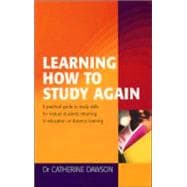
| Preface | xi | ||||
|
1 | (13) | |||
|
1 | (1) | |||
|
2 | (1) | |||
|
3 | (3) | |||
|
6 | (2) | |||
|
8 | (4) | |||
|
12 | (2) | |||
|
14 | (10) | |||
|
14 | (1) | |||
|
15 | (2) | |||
|
17 | (3) | |||
|
20 | (4) | |||
|
24 | (11) | |||
|
24 | (3) | |||
|
27 | (2) | |||
|
29 | (2) | |||
|
31 | (4) | |||
|
35 | (11) | |||
|
35 | (1) | |||
|
36 | (1) | |||
|
37 | (2) | |||
|
39 | (4) | |||
|
43 | (3) | |||
|
46 | (12) | |||
|
46 | (6) | |||
|
52 | (2) | |||
|
54 | (1) | |||
|
55 | (3) | |||
|
58 | (11) | |||
|
59 | (2) | |||
|
61 | (1) | |||
|
62 | (2) | |||
|
64 | (1) | |||
|
65 | (4) | |||
|
69 | (9) | |||
|
69 | (1) | |||
|
70 | (2) | |||
|
72 | (1) | |||
|
72 | (4) | |||
|
76 | (2) | |||
|
78 | (11) | |||
|
78 | (4) | |||
|
82 | (2) | |||
|
84 | (1) | |||
|
84 | (1) | |||
|
84 | (5) | |||
|
89 | (12) | |||
|
90 | (2) | |||
|
92 | (1) | |||
|
93 | (2) | |||
|
95 | (1) | |||
|
96 | (3) | |||
|
99 | (2) | |||
| 10 Making the Most of Information and Communication Technology | 101 | (15) | |||
|
102 | (1) | |||
|
102 | (1) | |||
|
103 | (3) | |||
|
106 | (1) | |||
|
107 | (1) | |||
|
108 | (2) | |||
|
110 | (1) | |||
|
110 | (3) | |||
|
113 | (3) | |||
| 11 Producing Successful Assignments | 116 | (13) | |||
|
116 | (9) | |||
|
125 | (1) | |||
|
126 | (3) | |||
| 12 Mastering Research Techniques | 129 | (13) | |||
|
129 | (1) | |||
|
130 | (6) | |||
|
136 | (1) | |||
|
137 | (2) | |||
|
139 | (2) | |||
|
141 | (1) | |||
| 13 Developing your Analytical Skills | 142 | (10) | |||
|
142 | (2) | |||
|
144 | (1) | |||
|
145 | (1) | |||
|
146 | (2) | |||
|
148 | (1) | |||
|
149 | (2) | |||
|
151 | (1) | |||
| 14 Conquering Oral Presentations | 152 | (12) | |||
|
153 | (2) | |||
|
155 | (2) | |||
|
157 | (3) | |||
|
160 | (4) | |||
| 15 Completing your Dissertation | 164 | (13) | |||
|
164 | (1) | |||
|
165 | (1) | |||
|
165 | (3) | |||
|
168 | (2) | |||
|
170 | (3) | |||
|
173 | (1) | |||
|
174 | (3) | |||
| 16 Passing your Exams | 177 | (10) | |||
|
177 | (4) | |||
|
181 | (1) | |||
|
182 | (3) | |||
|
185 | (2) | |||
| 17 Coping with the Pressures of Study | 187 | (11) | |||
|
187 | (2) | |||
|
189 | (2) | |||
|
191 | (2) | |||
|
193 | (5) | |||
| 18 Making the Most of Learner Support Services | 198 | (8) | |||
|
198 | (2) | |||
|
200 | (2) | |||
|
202 | (2) | |||
|
204 | (2) | |||
| Useful Addresses and Websites | 206 | (4) | |||
| Index | 210 |
The New copy of this book will include any supplemental materials advertised. Please check the title of the book to determine if it should include any access cards, study guides, lab manuals, CDs, etc.
The Used, Rental and eBook copies of this book are not guaranteed to include any supplemental materials. Typically, only the book itself is included. This is true even if the title states it includes any access cards, study guides, lab manuals, CDs, etc.